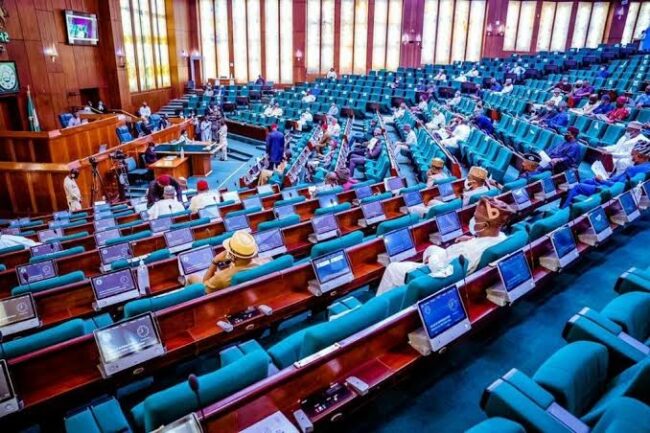On Wednesday, the House of Representatives passed through a second reading a bill seeking to establish a National Tax Crimes Commission with the aim of preventing revenue leakages during the payment of taxes across the country.
The private member bill, sponsored by the Deputy Speaker, Hon. Benjamin Kalu and 8 others, also seeks to address revenue leakages emanating from non-payment and underpayment of taxes, irregularities in the assessment, reporting and remittances of taxes to prevent and combat tax-related crimes, to ensure the protection of taxpayers rights and for related matters.’
Leading the debate on its general principles, one of the co-sponsors, Hon. Felix Nweke, stated that the commission, when established, will check irregularities in the assessment, reporting, and remittances of taxes, prevent and combat tax-related crimes, and plug all leakages in the tax administration system in the country.
He noted that leakages occur when unscrupulous staff and agents of tax authorities collude with citizens to underassess the taxpayer, thereby resulting in underpayment.
Hon. Nweke added that leakages also occur in the form of tax evasion, especially such that is encouraged and condoned by the tax collector and more especially among multinational corporations operating within the country.
The lawmaker observed that leakages also occur when there are non-remittances of collected taxes and the government does not get the total amount of taxes collected as a result of revenue diversion by fraudulent staff of tax authorities.
Hon. Nweke said there is a need to establish an Independent Tax Crimes and Oversight Commission, which will have the capacity to investigate, audit, prevent, and combat tax-related crimes.
This, he argued, will effectively prevent international tax evasion and other transnational organised crimes and abuses of the nation’s public finance system.
He stressed that the bill seeks to promote economic efficiency and an effective tax administration system, detect and deter evasion, fraud, and abuse in Nigeria’s tax administration system, and protect taxpayer’s rights.
According to him, the establishment of the National Tax Crimes and Oversight Commission is a strategic move to enhance fiscal resilience and not about increasing taxation.
He said, “This bill was read for the first time on Thursday, October 12, 2023. Mr. Speaker, Honourable Colleagues, the amount of revenue available to any government determines the extent to which such government may be able to provide public goods and services. It is a pointer to how far a nation can ensure its growth and development. While taxation is considered the most important means of generating public revenue, it is worthy of note that nations that strive to develop aim to put in place a fair, just, efficient, and simplified tax administration system that builds confidence amongst the citizens and also motivates and encourages them to pay their taxes.
“While it is one thing to fix the amount of taxes to be paid, it is another for tax collection authorities and assessors to determine the right amount of taxes to be paid in accordance with the provisions of extant tax laws.
“This will definitely contribute to our national security through prevention of tax-related crimes, prevention of illicit financial flow derived from tax evasion, international tax schemes, cybercrime, etc. The Tax Crimes and Oversight Commission will not function as a law court; it will not duplicate the functions of the Tax Appeal Tribunals established in accordance with Section 59(1) of the Federal Inland Revenue Service (Establishment) Act, 2007; and it will not be saddled with any form of quasi-judicial functions.
“The Commission will primarily focus on the Oversight of the Tax Administration System, ensuring that the Tax Authorities Discharge their duties within the ambit of the laws: protecting, promoting, and guaranteeing taxpayer’s rights where necessary, ensuring the prosecution of corrupt and fraudulent tax officials, ensuring the complete remittances of all public revenues, ensuring the increase of public Revenue not through introduction or increment of taxes but through friendly and appropriate taxation, among other things.
“The Commission will ultimately ensure that the five basic qualities of a good tax system, which include fairness, adequacy, simplicity, transparency, and administrative ease, are entrenched as part of global best practice.
“Similarly, independent tax auditing and investigating organisations exist in other countries; such as the Treasury Inspector General for Tax Administration (TIGTA) of the United States and the Inspector-General of Taxation and Ombudsman (IGT/0) of Australia. Similar Organisations exist in Ghana, Kenya, South Africa, etc.
“There is a need to put in place an effective system which oversights tax administration in Nigeria, a system which can address taxpayers’ grievances and complaints promptly and without hassles, a system which will be so friendly and that can encourage and raise people’s willingness to pay their taxes.”
